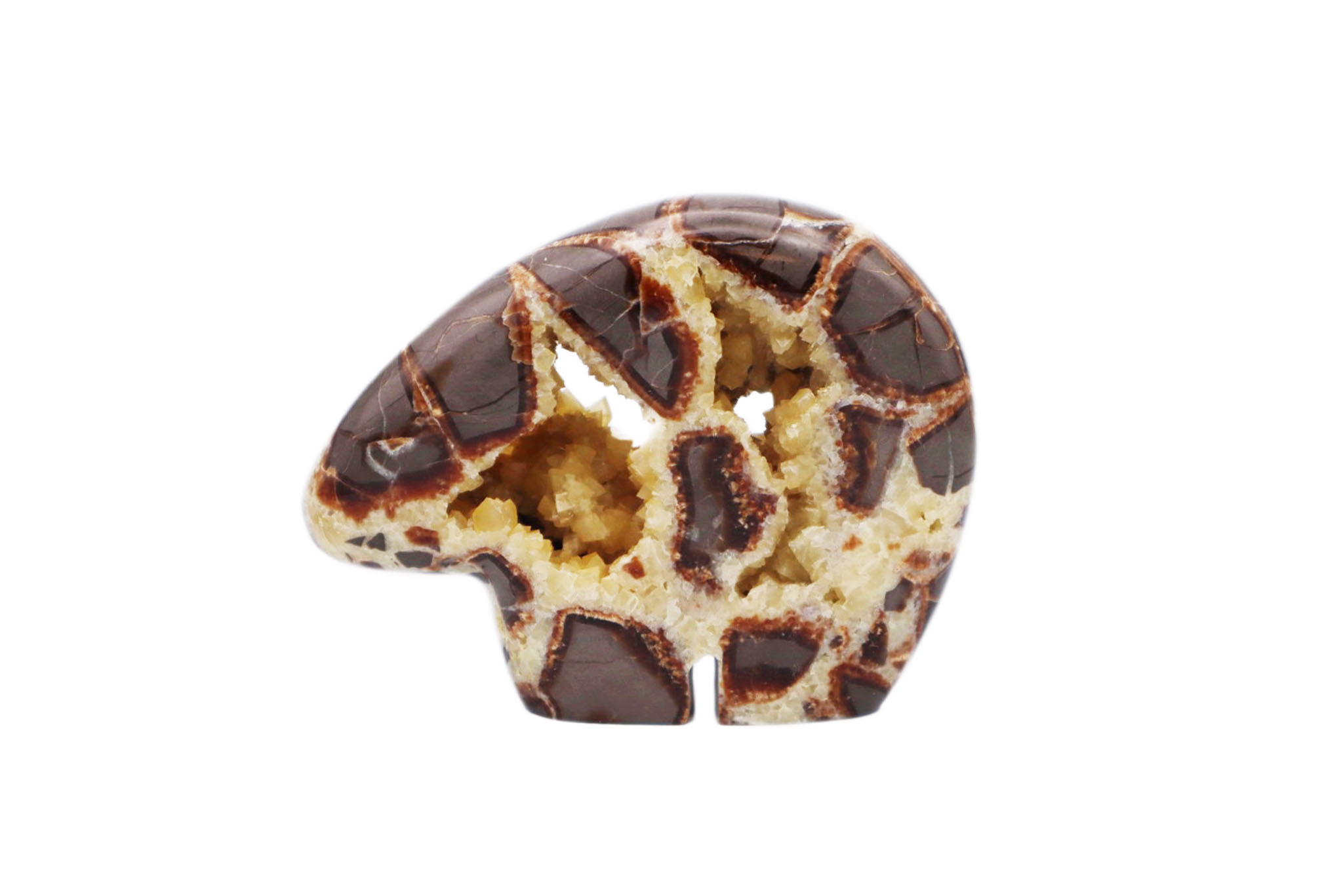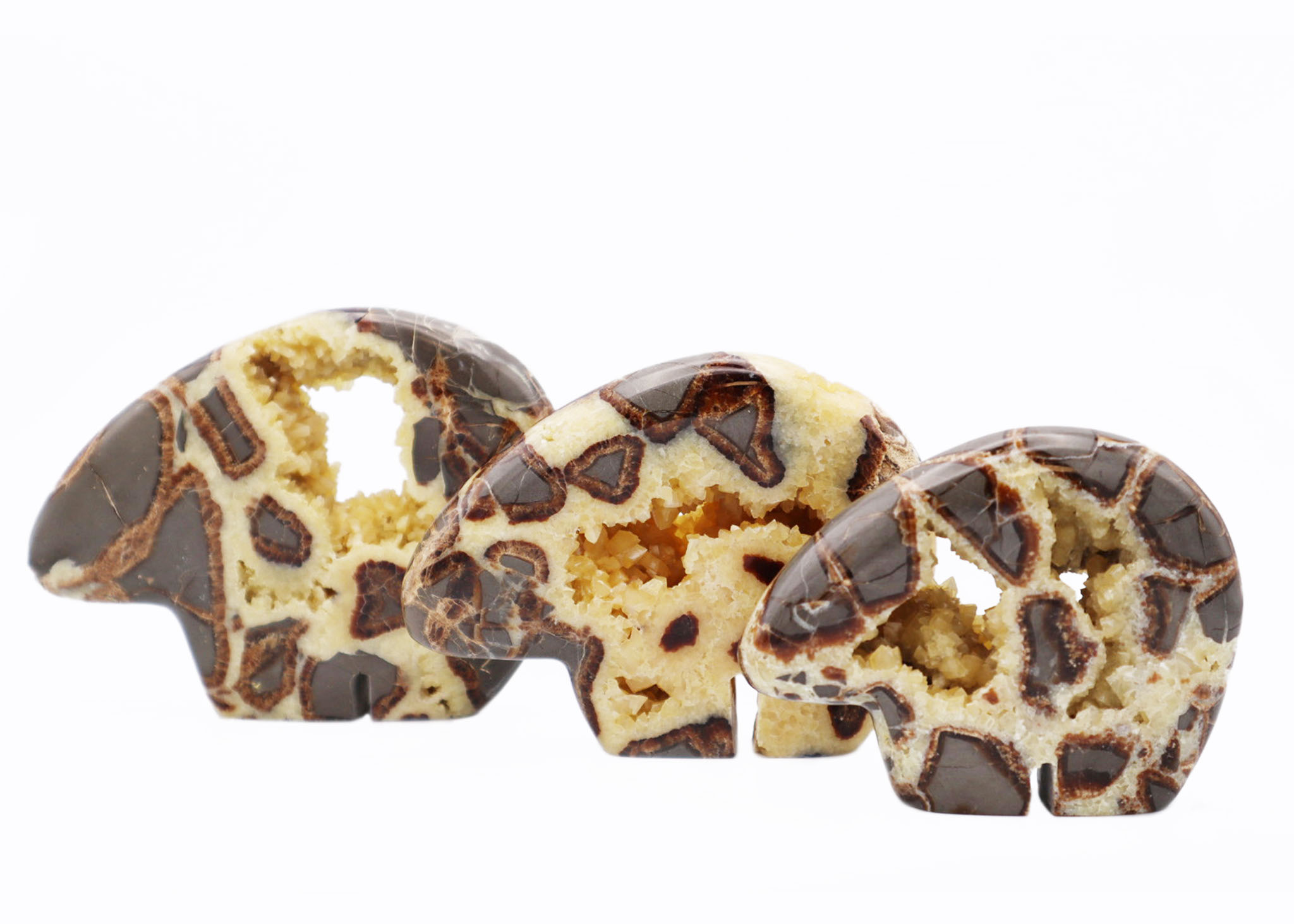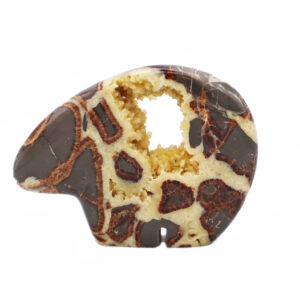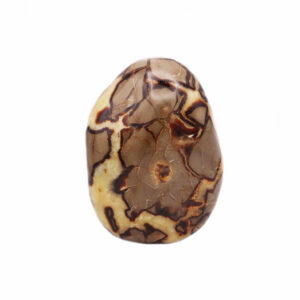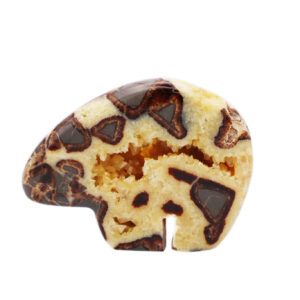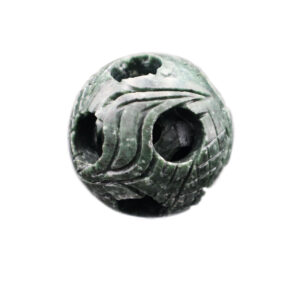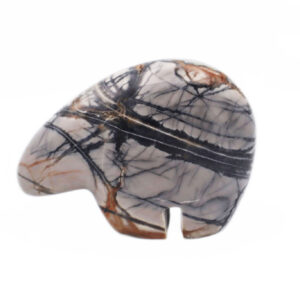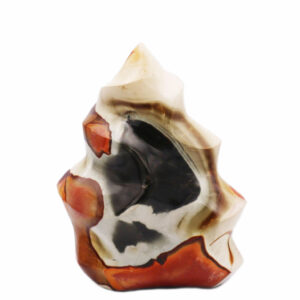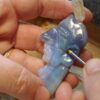Description
A Septarian nodule is a rounded or irregular mass of mostly yellow calcite with rims of brown aragonite. It formed millions of years ago when waters from the Gulf of Mexico reached into southern Utah. After sediment formed around decaying SeaLife, the tide, wave action, and the sun contributed to their cracking and filling over and over. In time, they were buried deeper in the sediment. Septarian nodules, when opened, reveal a pattern of divided walls. The name Septarian comes from the Latin word “septum” meaning ” dividing walls”. This specimen is from Utah.
Septarian bear measures 4″ x 2.5″

